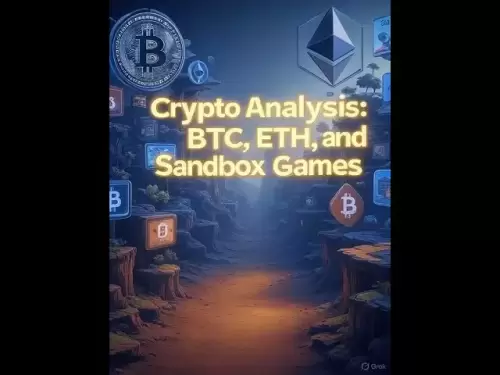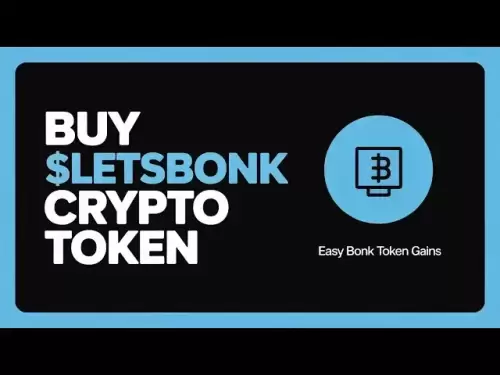-
 Bitcoin
Bitcoin $118100
-0.44% -
 Ethereum
Ethereum $3585
5.43% -
 XRP
XRP $3.434
5.65% -
 Tether USDt
Tether USDt $1.000
0.02% -
 BNB
BNB $743.8
3.89% -
 Solana
Solana $178.7
3.84% -
 USDC
USDC $1.000
0.03% -
 Dogecoin
Dogecoin $0.2381
12.81% -
 TRON
TRON $0.3270
3.62% -
 Cardano
Cardano $0.8315
4.93% -
 Hyperliquid
Hyperliquid $44.51
-4.42% -
 Stellar
Stellar $0.4710
1.52% -
 Sui
Sui $3.896
-2.51% -
 Chainlink
Chainlink $18.09
6.98% -
 Hedera
Hedera $0.2681
9.31% -
 Bitcoin Cash
Bitcoin Cash $516.7
4.83% -
 Avalanche
Avalanche $23.95
6.96% -
 Shiba Inu
Shiba Inu $0.00001490
5.67% -
 UNUS SED LEO
UNUS SED LEO $8.966
0.80% -
 Toncoin
Toncoin $3.294
4.39% -
 Litecoin
Litecoin $105.4
4.69% -
 Polkadot
Polkadot $4.356
5.30% -
 Uniswap
Uniswap $10.29
17.25% -
 Monero
Monero $327.9
-3.04% -
 Bitget Token
Bitget Token $4.942
4.33% -
 Ethena USDe
Ethena USDe $1.001
0.08% -
 Pepe
Pepe $0.00001348
2.17% -
 Dai
Dai $1.000
0.02% -
 Aave
Aave $320.8
0.58% -
 Bittensor
Bittensor $411.8
-4.07%
How to query DOGE transaction records?
Use blockchain explorers like DogeChain.info or your DOGE wallet to query transaction records; enter the TXID or address to view details such as sender, recipient, and amount.
Apr 19, 2025 at 12:49 am
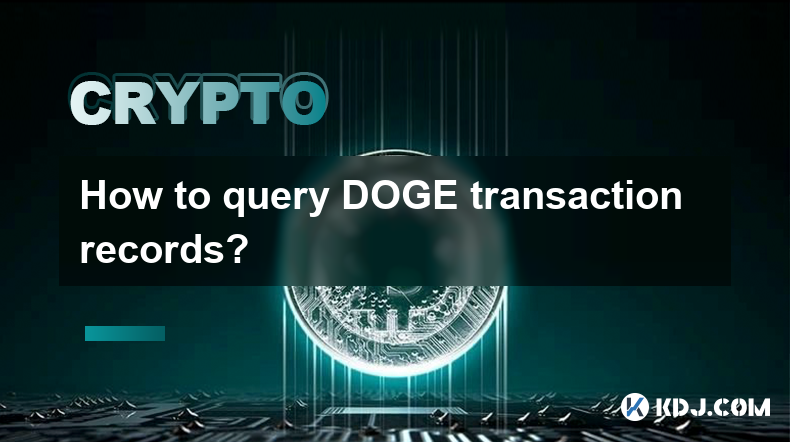
How to Query DOGE Transaction Records?
Querying DOGE transaction records is an essential skill for anyone involved in the cryptocurrency space, particularly those who hold or trade Dogecoin. This article will guide you through the process of accessing and understanding your DOGE transaction history, ensuring you can keep track of your assets effectively.
Understanding DOGE Transaction Records
Before diving into the specifics of querying DOGE transaction records, it's important to understand what these records entail. A DOGE transaction record includes details such as the sender's and recipient's addresses, the amount of DOGE transferred, the transaction fee, and the timestamp of the transaction. These records are stored on the Dogecoin blockchain, a public ledger that is accessible to anyone.
Using a Blockchain Explorer
One of the most straightforward ways to query DOGE transaction records is by using a blockchain explorer. Blockchain explorers are online tools that allow users to browse and search the Dogecoin blockchain. Here's how you can use a blockchain explorer to query your DOGE transaction records:
- Choose a Reliable Blockchain Explorer: There are several blockchain explorers available for Dogecoin, such as DogeChain.info and BlockCypher. Choose one that is reputable and user-friendly.
- Enter the Transaction ID or Address: To query a specific transaction, you can enter the transaction ID (TXID) into the search bar of the blockchain explorer. Alternatively, you can enter a Dogecoin address to view all transactions associated with that address.
- Review the Transaction Details: Once you've entered the TXID or address, the blockchain explorer will display detailed information about the transaction(s). This includes the sender and recipient addresses, the amount of DOGE transferred, the transaction fee, and the block in which the transaction was included.
Using a DOGE Wallet
Another method to query DOGE transaction records is through your DOGE wallet. Most wallets provide a transaction history feature that allows you to view all transactions associated with your wallet address. Here's how to do it:
- Open Your DOGE Wallet: Launch the DOGE wallet application or access your wallet through a web browser if it's a web-based wallet.
- Navigate to Transaction History: Look for a section labeled "Transaction History," "Transactions," or something similar. This section will list all the transactions associated with your wallet.
- Filter and Search: Some wallets allow you to filter transactions by date, amount, or type (sent or received). Use these filters to find the specific transaction you're looking for.
Using APIs for Advanced Queries
For those who need more advanced querying capabilities, using APIs (Application Programming Interfaces) can be a powerful solution. APIs allow you to programmatically access and query DOGE transaction records. Here's a basic guide on how to use APIs for querying DOGE transactions:
- Choose an API Provider: There are several API providers for Dogecoin, such as the Dogecoin API by BlockCypher or the DogeChain API. Choose one that suits your needs.
- Register and Obtain an API Key: Most API providers require you to register and obtain an API key. This key is used to authenticate your requests to the API.
- Write Your Query: Use the API documentation to construct your query. For example, you might use an endpoint like
GET /txs/{TXID}to retrieve details about a specific transaction. - Send the Request and Parse the Response: Use a programming language like Python or JavaScript to send the API request and parse the response. The response will contain detailed information about the transaction.
Verifying Transaction Records
Once you've queried your DOGE transaction records, it's crucial to verify their accuracy. Verification ensures that the transaction details you've accessed are correct and have not been tampered with. Here's how to verify your DOGE transaction records:
- Cross-Reference with Multiple Sources: Use multiple blockchain explorers or APIs to cross-reference the transaction details. If the information matches across different sources, it's likely accurate.
- Check the Transaction Hash: The transaction hash (TXID) is a unique identifier for each transaction. Ensure that the TXID you're querying matches the one recorded in your wallet or other sources.
- Monitor for Confirmations: Dogecoin transactions require confirmations to be considered final. Check the number of confirmations for the transaction to ensure it has been processed and is part of the blockchain.
Common Issues and Troubleshooting
When querying DOGE transaction records, you might encounter some common issues. Here's how to troubleshoot them:
- Transaction Not Appearing: If a transaction doesn't appear in your wallet or blockchain explorer, it might be pending or stuck. Check the transaction status and wait for confirmations.
- Incorrect Transaction Details: If the transaction details seem incorrect, double-check the TXID or address you entered. A single incorrect character can lead to different results.
- API Errors: If you're using an API and encountering errors, ensure your API key is valid and that you're using the correct endpoints and parameters. Refer to the API documentation for troubleshooting tips.
Frequently Asked Questions
Q: Can I query DOGE transaction records without a wallet?
A: Yes, you can use a blockchain explorer to query DOGE transaction records without needing a wallet. Simply enter the transaction ID or address into the explorer's search bar to view the transaction details.
Q: How long does it take for a DOGE transaction to be confirmed?
A: Dogecoin transactions typically require 1 to 6 confirmations to be considered final. The time it takes for these confirmations can vary but is usually around 1 to 10 minutes per confirmation.
Q: Is it possible to reverse a DOGE transaction?
A: No, once a DOGE transaction is confirmed on the blockchain, it cannot be reversed. It's important to double-check all transaction details before sending DOGE.
Q: Can I query DOGE transaction records anonymously?
A: Yes, you can use blockchain explorers to query DOGE transaction records without revealing your identity. However, keep in mind that all transactions on the blockchain are public and can be traced back to the addresses involved.
Disclaimer:info@kdj.com
The information provided is not trading advice. kdj.com does not assume any responsibility for any investments made based on the information provided in this article. Cryptocurrencies are highly volatile and it is highly recommended that you invest with caution after thorough research!
If you believe that the content used on this website infringes your copyright, please contact us immediately (info@kdj.com) and we will delete it promptly.
- Coinbase (COIN) Soars to All-Time High: What's Next?
- 2025-07-19 00:30:12
- DOGE, BlockDAG, and Vesting: What's Hot and What's Not in Crypto Right Now
- 2025-07-19 01:10:14
- Crypto Coins with 2025 Potential: BlockDAG and SUI Lead the Charge
- 2025-07-19 01:15:12
- Grass Cutting Hacks: Finding the Right Height for a Lush Lawn
- 2025-07-19 00:30:12
- RWA Token Revolution: Stage Point Europe Leads Crypto Real Estate Launch in Europe
- 2025-07-19 00:50:13
- Token Unlocks and AVAIL: July's Crypto Cliffhangers!
- 2025-07-19 00:50:13
Related knowledge
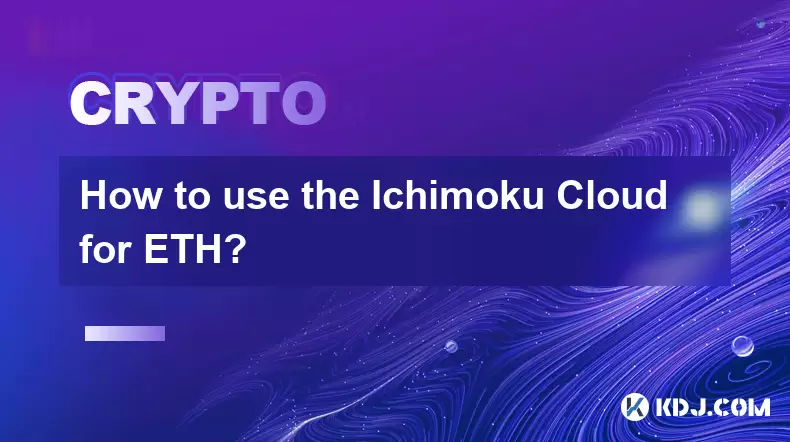
How to use the Ichimoku Cloud for ETH?
Jul 18,2025 at 09:56pm
Understanding the Ichimoku Cloud and Its ComponentsThe Ichimoku Cloud, also known as Ichimoku Kinko Hyo, is a versatile technical analysis tool that p...
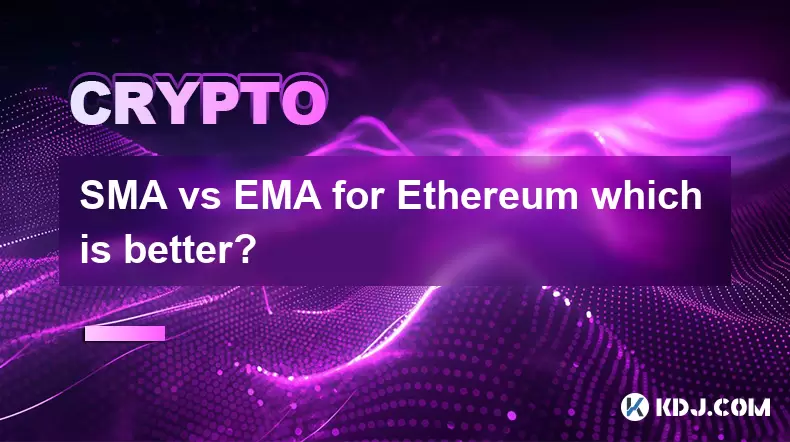
SMA vs EMA for Ethereum which is better?
Jul 19,2025 at 12:36am
Understanding the Basics of SMA and EMAIn the world of cryptocurrency trading, especially when dealing with Ethereum, technical indicators play a cruc...

How to customize USDT TRC20 mining fees? Flexible adjustment tutorial
Jun 13,2025 at 01:42am
Understanding USDT TRC20 Mining FeesMining fees on the TRON (TRC20) network are essential for processing transactions. Unlike Bitcoin or Ethereum, whe...

USDT TRC20 transaction is stuck? Solution summary
Jun 14,2025 at 11:15pm
Understanding USDT TRC20 TransactionsWhen users mention that a USDT TRC20 transaction is stuck, they typically refer to a situation where the transfer...

How to cancel USDT TRC20 unconfirmed transactions? Operation guide
Jun 13,2025 at 11:01pm
Understanding USDT TRC20 Unconfirmed TransactionsWhen dealing with USDT TRC20 transactions, it’s crucial to understand what an unconfirmed transaction...

How to check USDT TRC20 balance? Introduction to multiple query methods
Jun 21,2025 at 02:42am
Understanding USDT TRC20 and Its ImportanceUSDT (Tether) is one of the most widely used stablecoins in the cryptocurrency market. It exists on multipl...

How to use the Ichimoku Cloud for ETH?
Jul 18,2025 at 09:56pm
Understanding the Ichimoku Cloud and Its ComponentsThe Ichimoku Cloud, also known as Ichimoku Kinko Hyo, is a versatile technical analysis tool that p...

SMA vs EMA for Ethereum which is better?
Jul 19,2025 at 12:36am
Understanding the Basics of SMA and EMAIn the world of cryptocurrency trading, especially when dealing with Ethereum, technical indicators play a cruc...

How to customize USDT TRC20 mining fees? Flexible adjustment tutorial
Jun 13,2025 at 01:42am
Understanding USDT TRC20 Mining FeesMining fees on the TRON (TRC20) network are essential for processing transactions. Unlike Bitcoin or Ethereum, whe...

USDT TRC20 transaction is stuck? Solution summary
Jun 14,2025 at 11:15pm
Understanding USDT TRC20 TransactionsWhen users mention that a USDT TRC20 transaction is stuck, they typically refer to a situation where the transfer...

How to cancel USDT TRC20 unconfirmed transactions? Operation guide
Jun 13,2025 at 11:01pm
Understanding USDT TRC20 Unconfirmed TransactionsWhen dealing with USDT TRC20 transactions, it’s crucial to understand what an unconfirmed transaction...

How to check USDT TRC20 balance? Introduction to multiple query methods
Jun 21,2025 at 02:42am
Understanding USDT TRC20 and Its ImportanceUSDT (Tether) is one of the most widely used stablecoins in the cryptocurrency market. It exists on multipl...
See all articles
























